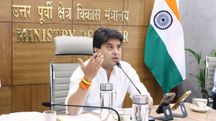NSF submits 9-point memorandum to Nagaland CM, seeks urgent action on core Naga issues
The Naga Students’ Federation (NSF) has submitted a detailed memorandum to Nagaland Chief Minister Neiphiu Rio, urging immediate and constructive intervention on a series of pressing issues that the organization described as “existential, political and developmental concerns” directly affecting the future of the Naga people.

The Naga Students’ Federation (NSF) has submitted a detailed memorandum to Nagaland Chief Minister Neiphiu Rio, urging immediate and constructive intervention on a series of pressing issues that the organization described as “existential, political and developmental concerns” directly affecting the future of the Naga people.
In its communication, the Federation acknowledged and appreciated the initiatives of the state government under Rio’s leadership, while emphasizing its own commitment to uphold the founding principles of unity, transparency, and Naga identity. The memorandum, signed by NSF President Mteisuding and General Secretary Kenilo Kent, listed nine key demands that call for urgent government attention and decisive leadership.
1. Indo-Naga Political Issue
The NSF reiterated that the Indo-Naga political issue remains “the very foundation of Naga existence” and urged the state government to move beyond symbolic gestures. The Federation called for greater inclusivity among all Nagas, advocacy for the integration of Naga territories, and facilitation of unconditional political dialogue for an “honorable and lasting solution.”
2. Influx of Illegal Immigrants
Expressing grave concern over the unchecked inflow of illegal immigrants, the NSF termed it an “existential threat” to indigenous communities. The organization proposed the creation of a special commission for Inner Line Regulation (ILR), a centralized ILP database, and dedicated enforcement wings across districts. It also urged for ILP offices at Dimapur’s railway station and airport and for close coordination with local councils to curb infiltration.
3. Rampant Illegal Appointments
Highlighting the widespread practice of backdoor appointments, the Federation alleged that such actions “destroy transparency and discourage merit.” The NSF demanded a complete halt to illegal appointments, strict adherence to recruitment through the NPSC and NSSB, and accountability for officials involved in these practices.
4. Upgradation of Khelhoshe Polytechnic Atoizu (KPA)
Pointing to the lack of a full-fledged government engineering college in Nagaland, the NSF urged the government to upgrade Khelhoshe Polytechnic Atoizu (KPA) into a government engineering college by the 2026–27 academic year. The step, it said, would promote technical self-reliance and reduce students’ dependence on institutions outside the state.
5. Indigenous Representation in Higher Institutions
Citing the lack of indigenous representation in Nagaland University and the National Institute of Technology (NIT) Chumoukedima, the NSF demanded that at least 80% of teaching and non-teaching positions be reserved for indigenous Nagas. The Federation justified its demand through Article 371(A), the need for institutional continuity, and the state’s high unemployment among educated youth.
6. E-Governance and Administrative Transparency
Calling transparency “the cornerstone of good governance,” the NSF urged the government to implement robust e-Governance systems in all departments. It suggested adherence to Government of India’s GIGW guidelines, expansion of digital platforms for public interaction, and use of mobile technology to eliminate corruption and delays in service delivery.
7. Youth Empowerment and Self-Reliance
Expressing concern over the growing unemployment among Naga youth, the NSF proposed a three-pronged approach:
Each MLA to sponsor UPSC aspirants from their constituencies.
Strengthened skill and vocational training through the NEP 2020 framework.
Expansion of the CM Micro Finance Initiative to foster entrepreneurship and self-reliance.
8. Repeal of AFSPA
The Federation reiterated its strong stance against the continued enforcement of the Armed Forces (Special Powers) Act (AFSPA), terming it a “draconian law” responsible for long-standing trauma and injustice in Naga areas. The NSF called upon the state government to amplify the demand for a total repeal of AFSPA at national forums and to advocate for justice and peace.
9. Opposition to Scrapping of Free Movement Regime (FMR) and Border Fencing
The NSF condemned the Central Government’s decision to abolish the Free Movement Regime (FMR) and impose border fencing along the Indo-Myanmar boundary. The Federation stated that such measures threaten the centuries-old cultural and kinship ties among Nagas living across both sides of the border. It urged the state government to resist these “regressive policies” and to advocate for solutions that protect traditional cross-border relations.
Concluding the memorandum, the NSF reiterated its readiness to cooperate with the government in promoting justice, transparency, and holistic development, while expressing hope that under the Chief Minister’s leadership, Nagaland would “take bold steps towards peace, accountability, and progress.”
Copyright©2025 Living Media India Limited. For reprint rights: Syndications Today









